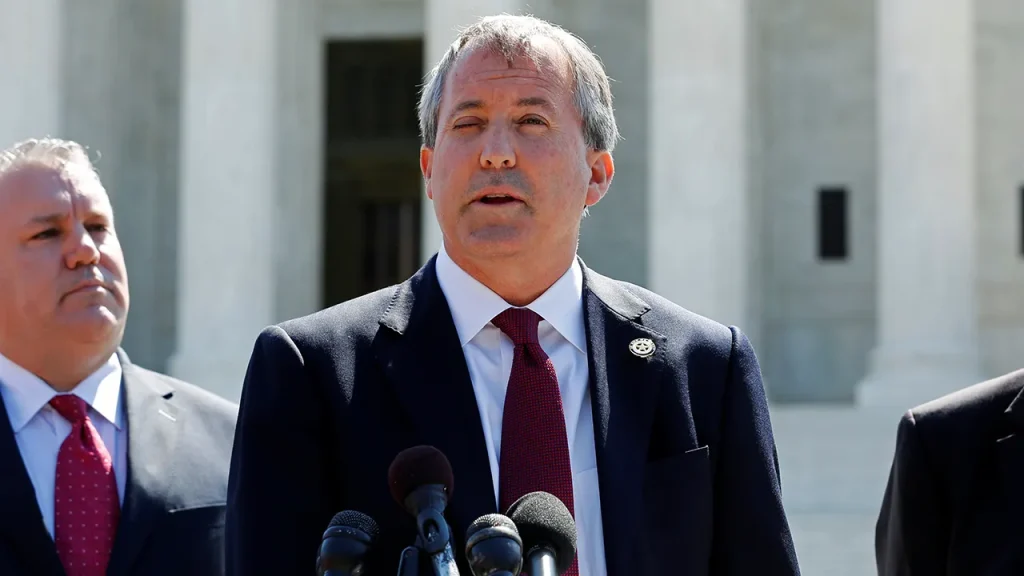Texas Attorney General Investigates Tennis Organization Over Transgender Athlete Policies
Challenging the USTA Texas League
Texas Attorney General Ken Paxton has launched an investigation into the United States Tennis Association (USTA) Texas League, questioning whether the organization’s policies on transgender athlete participation violate state law. This investigation is part of a broader effort by Paxton’s office to enforce Texas legislation that prohibits individuals who were assigned male at birth from competing in women’s sports competitions. “We will defeat the radical left, which is obsessed with crushing the dreams of so many girls by allowing men to compete against women in sports,” Paxton declared in his public statement addressing the investigation. This move reflects the growing tension between sports governing bodies and state officials over transgender participation policies in athletic competitions.
The Civil Investigative Demand
At the center of this controversy is a Civil Investigative Demand (CID) issued by Paxton’s office to the USTA Texas League. This legal instrument requires the organization to produce documents, policies, and other information related to its handling of transgender athlete participation. The attorney general’s office claims this investigation aims to determine whether the USTA’s practices potentially violate the Texas Deceptive Trade Practices Act or other consumer protection statutes. Paxton has made his position clear: “If USTA is allowing biological males in women’s matches and misleading players about who they are competing against, my office will take all necessary action within our power to defend Texas women and girls.” The language used in the CID has itself become controversial, referring to transgender athletes in terms that many advocacy groups consider derogatory and inflammatory.
Legal Pushback from the USTA
The USTA has not taken this investigation lying down. In response to the CID, the organization has filed a lawsuit against Paxton’s office, challenging both the demand itself and the allegations underlying it. This legal counter-move highlights the complex jurisdictional questions at play when state laws conflict with the policies of national sporting organizations. The lawsuit will likely examine whether the state has the authority to dictate eligibility requirements for a national organization’s competitions and whether the USTA’s policies actually violate Texas law as claimed. This case represents just one battle in a larger national conflict over transgender rights in sports, with both sides deeply entrenched in their positions.
Part of a Broader Republican Campaign
Paxton’s investigation of the USTA is not an isolated action but rather fits into a coordinated Republican strategy to restrict transgender participation in sports across multiple levels. Earlier this year, Paxton sued the NCAA over its transgender eligibility policy, claiming it didn’t fully align with a Trump administration executive order banning transgender women from competing in women’s sports. The Texas attorney general has also taken legal action against U.S. Masters Swimming and various local school boards regarding their transgender athlete policies. These cases demonstrate the expanding scope of efforts to enforce gender-based restrictions in athletics, creating a patchwork of regulations and legal challenges across different sporting contexts and jurisdictions.
The Arguments on Both Sides
Supporters of restrictions on transgender athlete participation, including Paxton and many Republicans nationwide, argue that these measures are necessary to preserve fairness and safety in women’s sports. They contend that individuals who experienced male puberty may retain certain physical advantages even after hormone therapy, potentially creating an uneven playing field. On the other side, LGBTQ+ advocates and many sports organizations maintain that inclusive policies can be implemented with appropriate guidelines that balance fairness with the rights of transgender athletes to participate in sports aligned with their gender identity. They point to research suggesting that hormone therapy can substantially reduce physical advantages and that blanket bans are discriminatory. The debate continues to evolve as more scientific research emerges and as different sporting bodies implement and revise their policies.
National Implications and Ongoing Tension
This Texas investigation reflects a nationwide tension that extends far beyond tennis courts. As states pass varying laws regarding transgender athlete participation, national sporting organizations face increasing challenges in creating uniform policies that can work across different jurisdictions. Athletes themselves are caught in the middle, with some speaking out about perceived competitive disadvantages while others advocate for greater inclusion. The outcome of Paxton’s investigation and the USTA’s legal challenge could influence how other sporting organizations navigate these complex waters going forward. As the political and cultural debate intensifies, sports governing bodies must balance legal compliance, competitive fairness, and their commitments to inclusivity—a challenge that shows no signs of easy resolution as these cases wind their way through courts and public opinion.


